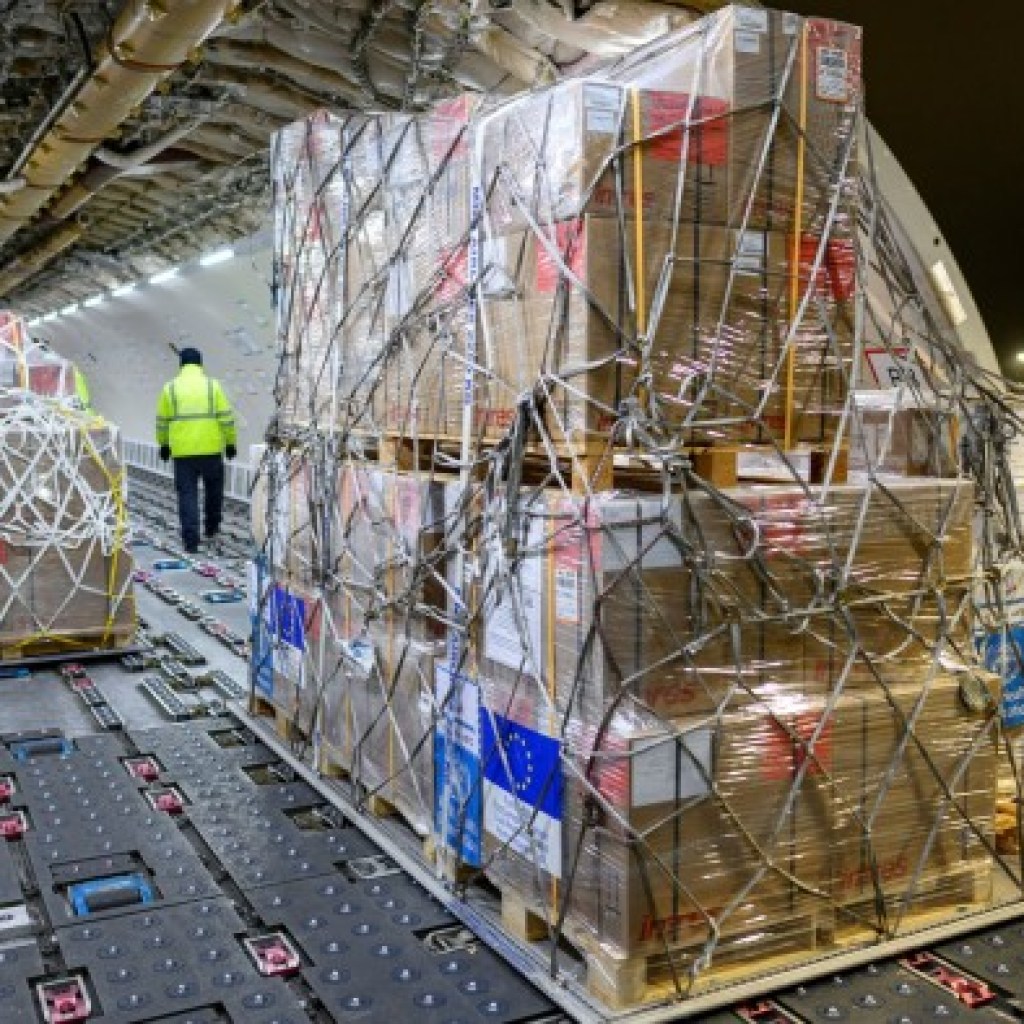Open Editor’s Digest for free
Rula Khalaf, editor of the Financial Times, selects her favorite stories in this weekly newsletter.
Four female Israeli soldiers held hostage by Hamas returned to Israel while 200 Palestinian prisoners were released on Saturday as part of a Gaza ceasefire agreement that ended more than 15 months of war.
The truce entered into force last Sunday after the release of three Israeli civilian hostages and 90 Palestinian detainees.
The four soldiers — Liri Albag (19 years old), Daniela Gilboa (20 years old), Karina Arif (20 years old), and Naama Levy (20 years old) — were kidnapped from a military site on the Israel-Gaza border during a Hamas attack on October 7, 2023 that led to… To the outbreak of conflict. Their freedom has become a central demand of the hostage-release movement that has rallied around the families of those still detained in Gaza.
Hamas militants initially handed the group over to Red Cross employees in Palestine Square in Gaza City, amid a crowd of hundreds of uniformed and armed militants and cheering onlookers waving the group’s green flag.
The four Israeli women walked across the square to a small platform carrying a banner in Hebrew that read, “Zionism will not win.” After briefly waving to the crowd, they were escorted to Red Cross vehicles.
The Red Cross took the four to a transfer point where they were handed over to Israeli special forces and intelligence agents who then returned them to Israeli territory. The women were later transferred by helicopter to a hospital in the center of the country, where they will remain with their families during the coming days and receive medical care.
After their arrival in Israel, 200 Palestinian prisoners were released from Israeli prisons – the majority to the occupied West Bank, 20 to Gaza, and dozens to Egypt where they were expected to leave for exile in a third country.
Hamas said: “Today, the criminal occupier forced us to open the doors of his cells to our heroic prisoners.” “This is our pledge to them for freedom, and to our people to continue walking together on the path to independence and self-determination.”
This second batch of hostage releases was temporarily thrown into doubt on Friday night after Hamas announced that four soldiers would be released.
Israeli officials claimed this was a violation of the terms of the agreement, which called for still-living civilian women – one of whom is believed to be in captivity – to be released before soldiers. However, the Israeli government has decided to move forward, and it remains unclear whether civilian Erbil Yehud will be released as part of next week’s exchange deal.
Israeli Prime Minister Benjamin Netanyahu’s office said it would not allow hundreds of thousands of displaced Palestinians to return to northern Gaza until the issue of their release was “settled” – a move that was expected to begin later on Saturday.
Daniel Hagari, spokesman for the Israeli army, said: “We appreciate and thank the efforts of all international mediators. . . We expect them to ensure that Hamas adheres to the agreement.”
US-led mediators succeeded in reaching a six-week ceasefire between Israel and Hamas this month, the first stage of a complex three-stage agreement that could permanently end the war and secure the release of the remaining 90 hostages held by Hamas.
Donald Trump had warned that there would be a “big push” if an agreement was not reached before his inauguration on Monday. The new US president said on Friday: “The agreement must continue, but if that does not happen there will be a lot of problems.”
The first phase of the agreement consists of the release of 33 Israeli hostages – including children, women, the sick and the elderly – in exchange for about 1,900 Palestinian prisoners, hundreds of whom are serving long sentences on charges of terrorism and murder. The issuances are scheduled to take place in weekly installments over 42 days from the first phase.
During this time, Israeli forces will withdraw from populated areas in the torn territories and displaced Palestinians will be allowed to return to their homes. Humanitarian aid entering the Strip has increased sharply over the past week.
By the sixteenth day of the first phase, Israel and Hamas are scheduled to begin negotiating the details of the second phase, in which the remaining living hostages will be released in exchange for the release of more Palestinian prisoners, a further withdrawal of Israeli forces from Gaza, and a complete end to the blockade. War. The final stage will include the return of the bodies of the dead hostages and the start of the reconstruction of Gaza.
Contents
Related posts:

Say Job City in Pakistan for today latest jobs opportunities in private and Govt departments. View all new Government careers collected from daily. sayjobcity.com


